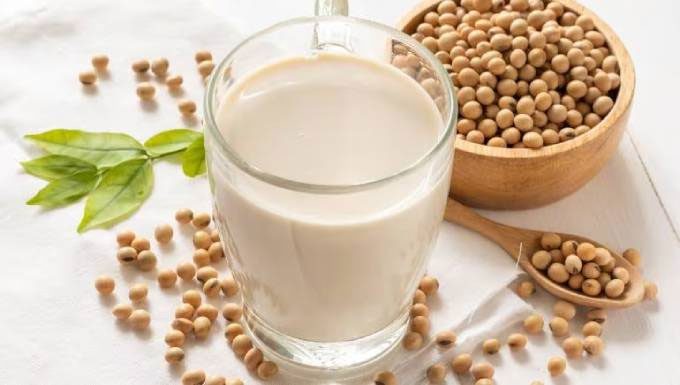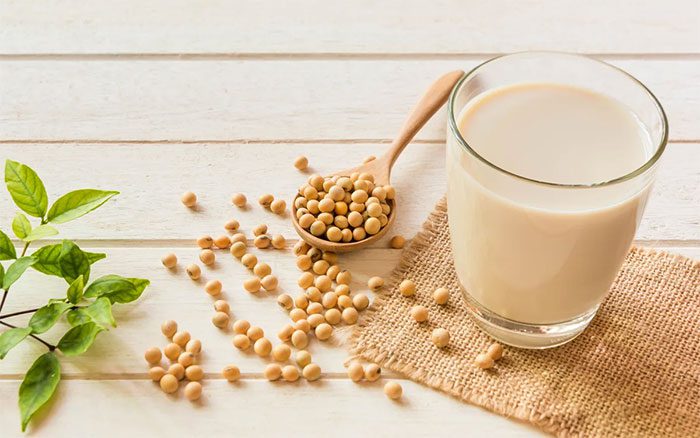Soy milk is highly nutritious, easily absorbed, and digestible. In addition to its hormone-regulating effects and immune system enhancement, soy milk also helps stabilize certain conditions like high cholesterol and diabetes, while improving brain function.
Important Notes When Drinking Soy Milk
With its numerous health benefits, soy milk is a popular beverage in daily life and is often chosen for breakfast. However, is it really good to drink a lot of soy milk each day, and how much is considered sufficient?

Do not drink more than 500 ml of soy milk per day for good health.
What are the risks of drinking too much soy milk?
Causes bloating and indigestion
Soy milk is rich in protein, and excessive consumption can lead to an overload of protein, causing indigestion, bloating, diarrhea, and other symptoms. Additionally, soy milk has a cooling effect, so those with digestive issues or gas should only consume small amounts. Furthermore, soy milk can produce gas when acted upon by enzymes, which is not suitable for those experiencing bloating or diarrhea.
Increases the burden on the kidneys
Due to its high protein content, consuming too much soy milk at once can increase the metabolic burden on the kidneys, particularly for individuals with poor kidney function.
Can lead to weight gain
Generally, soy milk contains a significant amount of fiber, diuretics, and isoflavones that can aid in weight loss. However, because soy milk has a relatively high calorie content, excessive intake can lead to weight gain. It is advisable to consume only 100 ml to 200 ml of soy milk at a time and about 500 ml per day.
May affect estrogen’s effects in the body
Soy milk contains a small amount of phytoestrogens, which have a molecular structure similar to estrogen and can bind to estrogen receptors. Excessive consumption of soy milk can interfere with the normal interaction between physiological estrogen and estrogen receptors, thereby inhibiting estrogen activity.
How much soy milk should you drink daily?
While soy milk is very beneficial, it is essential to control the amount consumed; excessive intake can have adverse effects. Generally, adults should limit their intake to a maximum of 500 ml of soy milk per day. Children over one year old can consume soy milk, but it should not exceed 200-230 ml daily.

People with kidney stones or kidney disease should avoid drinking soy milk.
Who should avoid drinking soy milk?
Patients with acute gastritis and chronic gastritis should avoid soy products to prevent excessive gastric acid secretion, which can worsen their condition or cause bloating. Soybeans contain a certain amount of oligosaccharides (a polymer saccharide containing small amounts of simple sugars), which can cause gas, increased bowel motility, and bloating, making it unsuitable for individuals with gastric ulcers.
Soy products are high in protein, requiring the kidneys to work harder to metabolize the substances contained in the milk. Additionally, the oxalate content in soy can combine with calcium in the kidneys, leading to stone formation and exacerbating symptoms of kidney stones. Therefore, individuals with kidney stones or kidney disease should also refrain from drinking soy milk.
Soybeans are rich in purines, a chemical compound found abundantly in seafood and organ meats, which is not beneficial for individuals suffering from gout.



















































